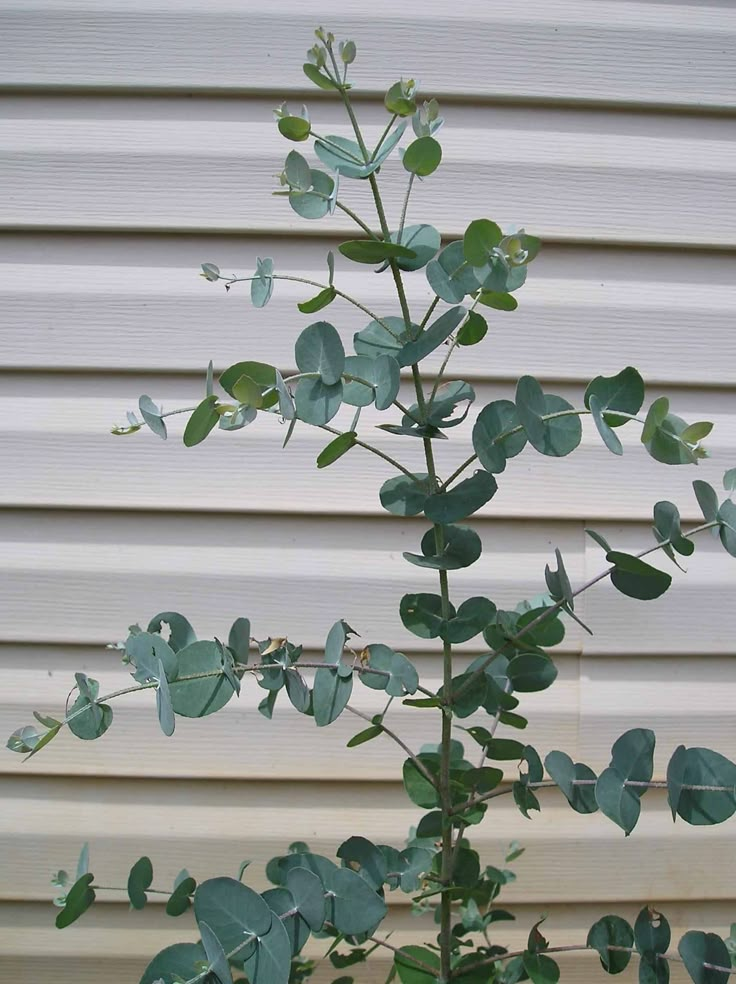Companion Planting with Eucalyptus: Benefits and Tips
Eucalyptus Companion Plants
If you're looking for a plant that adds fragrance, beauty, and medicinal value to your garden, eucalyptus is an excellent choice. These tall trees, native to Australia, are known for their aromatic leaves and essential oils, which have numerous health benefits. However, eucalyptus also has a reputation of being a challenging plant to grow due to its allelopathic nature. This means that it releases chemicals that inhibit the growth of other plants around it. So, what can you do if you want to grow other plants alongside eucalyptus? The solution lies in companion planting.
What is Companion Planting?
Companion planting is a gardening technique that involves growing different plants together to benefit each other. Companion plants may repel pests, attract beneficial insects, provide shade, or add nutrients to the soil. When right, companion planting can improve crop yields, reduce the need for pesticides, and create a more diverse and resilient ecosystem.
The Benefits of Companion Planting with Eucalyptus
Companion planting with eucalyptus can be challenging, but it's not impossible. In fact, there are several benefits to growing companion plants alongside eucalyptus:
- Attracting pollinators: Eucalyptus flowers are rich in nectar, which attracts bees, butterflies, and other pollinators. By growing companion plants that bloom at different times, you can attract a wider range of pollinators and improve the overall health of your garden.
- Providing shade: Eucalyptus trees can be tall and narrow, which means they cast a lot of shade. You can take advantage of this by planting shade-tolerant plants underneath them, such as ferns, hostas, or impatiens.
- Adding fragrance: Eucalyptus leaves have a distinct, refreshing scent that can be used in aromatherapy and home remedies. By growing fragrant companion plants like lavender, rosemary, or thyme, you can create a soothing and aromatic garden space.
- Improving soil quality: Eucalyptus trees have deep roots that can mine nutrients from deep within the soil. Companion plants with shallow roots, like clover, can benefit from this by accessing the nutrients that eucalyptus brings up to the surface. In return, clover can fix nitrogen in the soil, which is essential for plant growth.
Tips for Companion Planting with Eucalyptus
Companion planting with eucalyptus requires some planning and experimentation. Here are some tips to get you ed:
- Choose the right plants: Look for plants that are compatible with eucalyptus in terms of soil type, moisture level, and sun exposure. Some good options include herbs like mint, basil, and oregano, as well as flowers like marigolds, zinnias, and cosmos.
- Plant at the right time: Eucalyptus trees grow quickly and can dominate the landscape if not managed properly. To avoid this, plant companion plants after the eucalyptus has established itself, and prune the tree regularly to keep it under control.
- Experiment with spacing: Eucalyptus releases chemicals called allelochemicals, which can inhibit the growth of other plants. To reduce the impact of these chemicals, plant companion plants at a distance from the eucalyptus, or experiment with different spacing configurations until you find what works best for your garden.
- Use mulch: Mulching around companion plants can help retain moisture in the soil and suppress weed growth. However, be careful not to use too much mulch, as this can create a favorable environment for pests and diseases.
Frequently Asked Questions
Q1. Can you grow vegetables with eucalyptus?
A1. Yes, you can grow vegetables alongside eucalyptus, but it's important to choose the right plants and provide them with enough space and sunlight. Some good options include tomatoes, peppers, and eggplants.
Q2. Do eucalyptus trees attract pests?
A2. Eucalyptus trees are not usually prone to pests or diseases, but they can attract certain insects like psyllids, which can cause damage to the leaves. Companion planting with herbs like rosemary, thyme, and basil can help repel these pests naturally.
Q3. What is allelopathy?
A3. Allelopathy is a biological phenomenon where one plant releases chemicals that affect the growth or behavior of another plant. Eucalyptus is known for its allelopathic nature, which means it can inhibit the growth of other plants around it.
Q4. Can eucalyptus oil be used as a natural insect repellent?
A4. Yes, eucalyptus oil is a natural insect repellent that can be used to repel mosquitoes, ticks, and other pests. However, it should be used with caution, as it can cause skin irritation in some people.
Q5. What are some other companion plants for eucalyptus?
A5. Some other companion plants for eucalyptus include:
- Lavender
- Rosemary
- Thyme
- Mint
- Basil
- Marigolds
- Zinnias
- Cosmos










Post a Comment for "Companion Planting with Eucalyptus: Benefits and Tips"